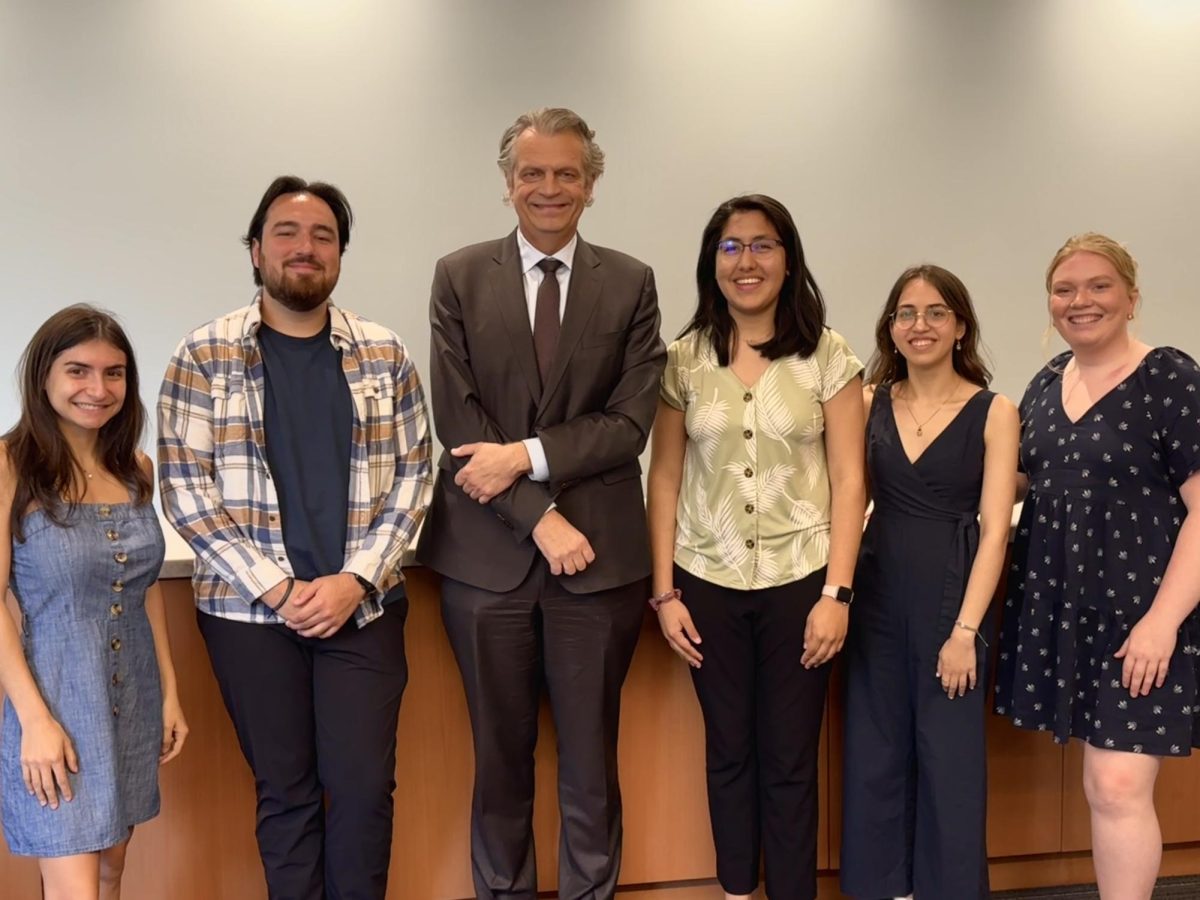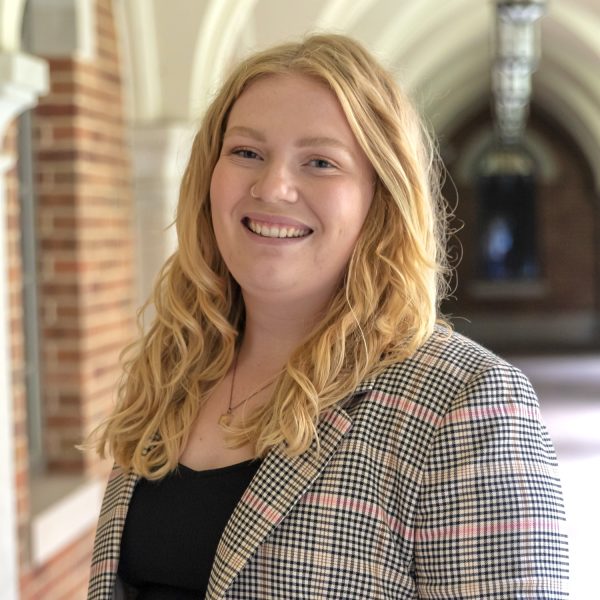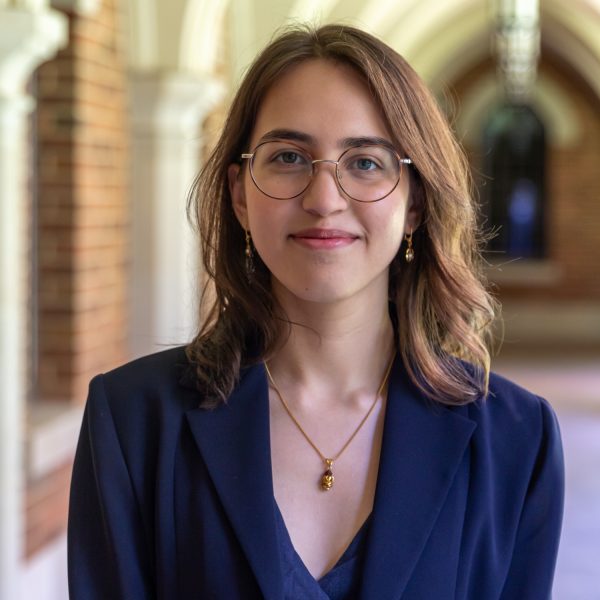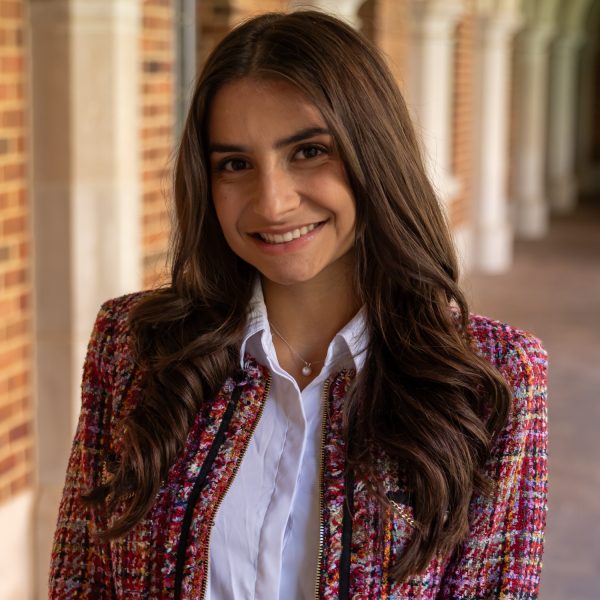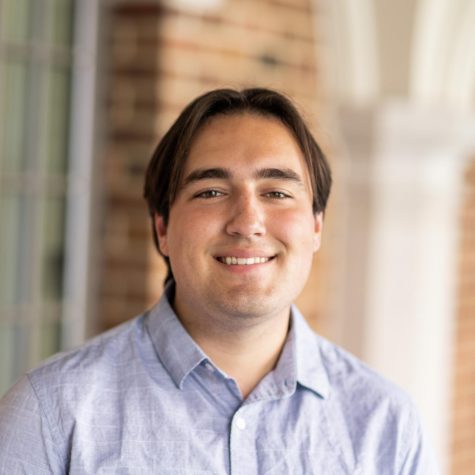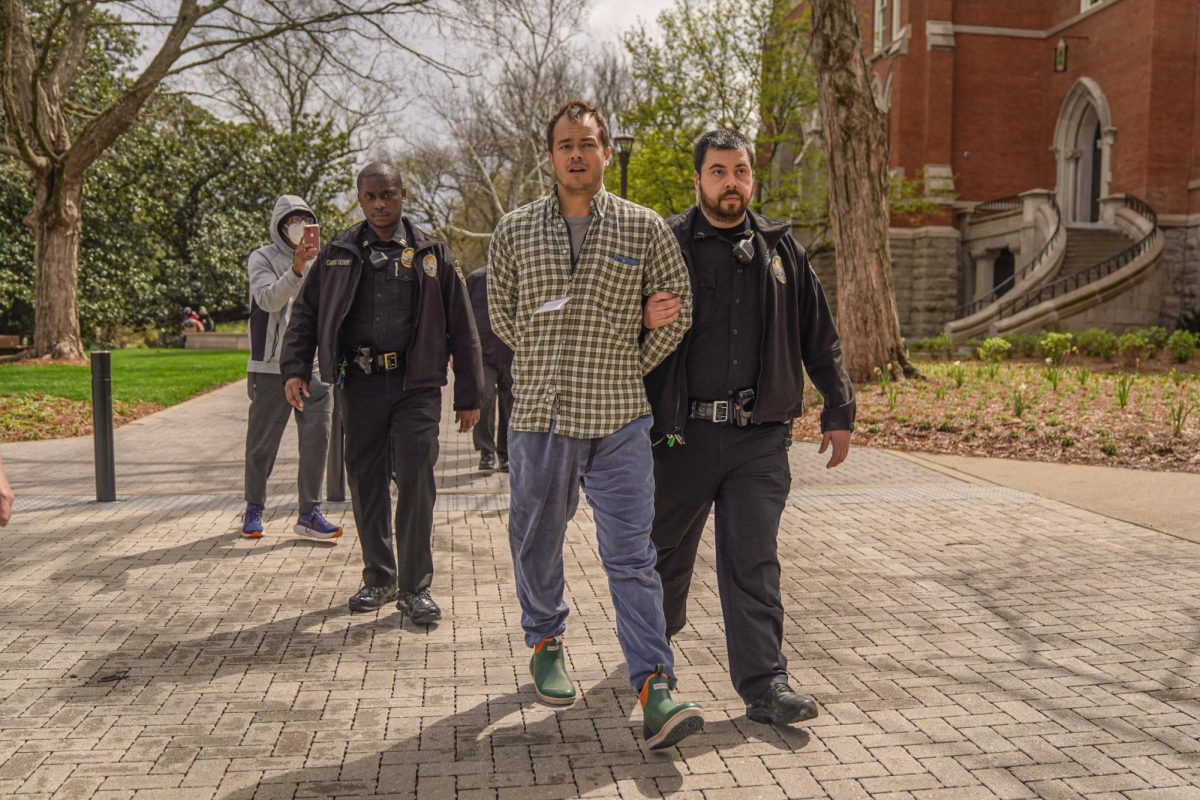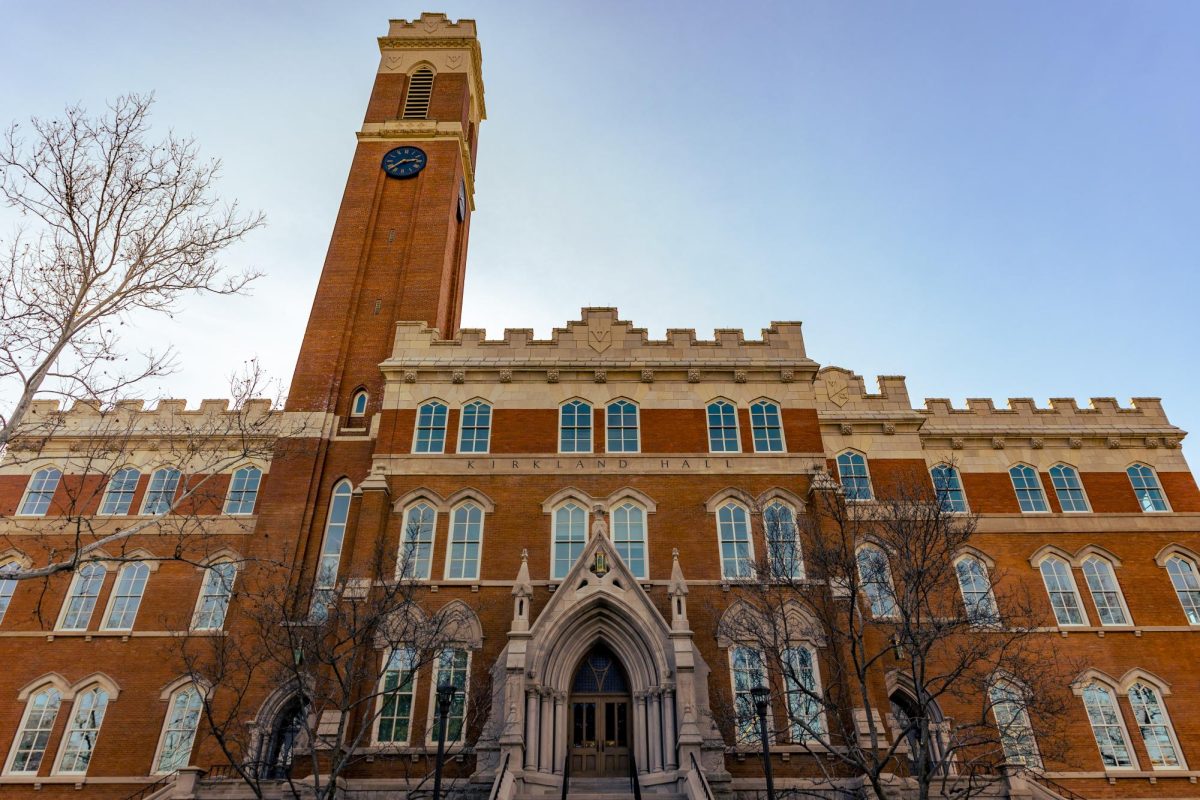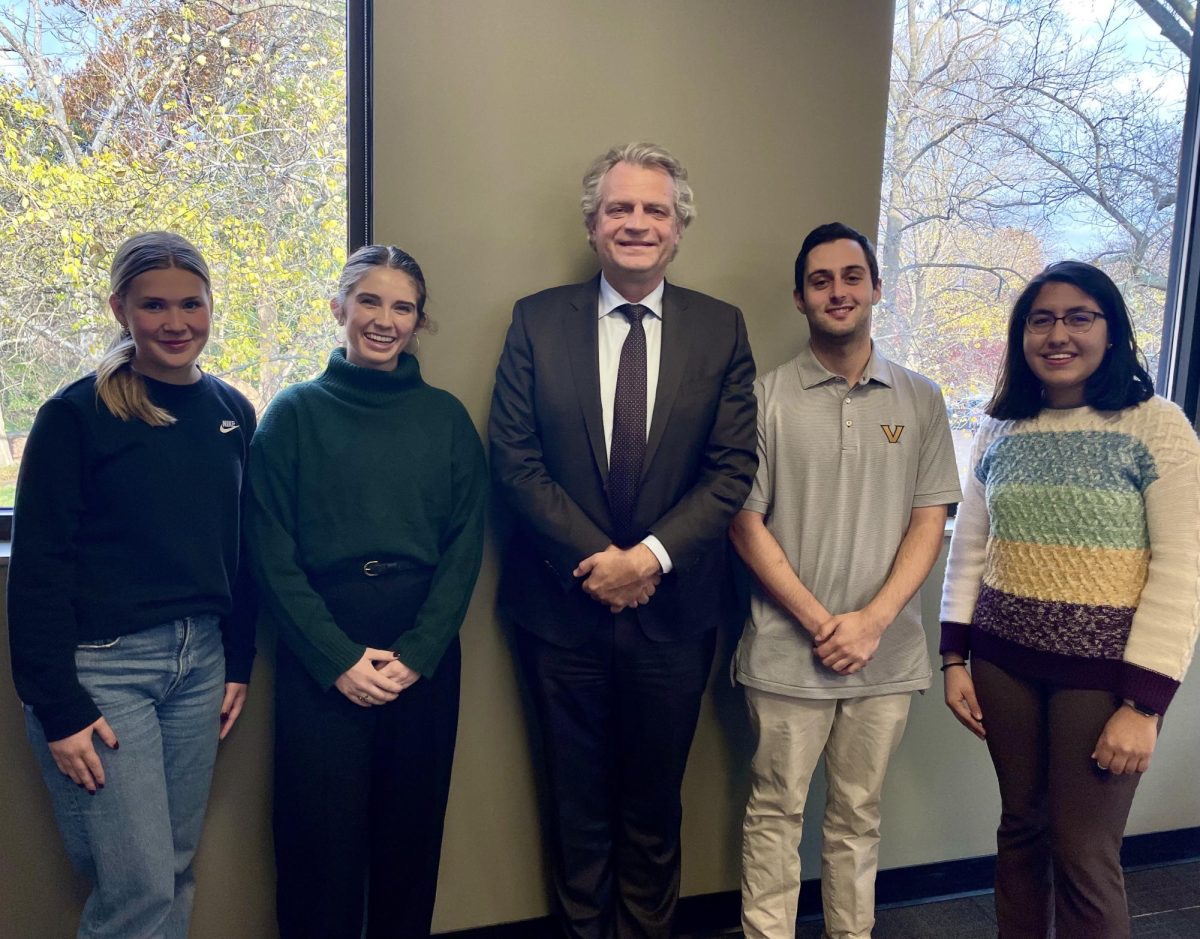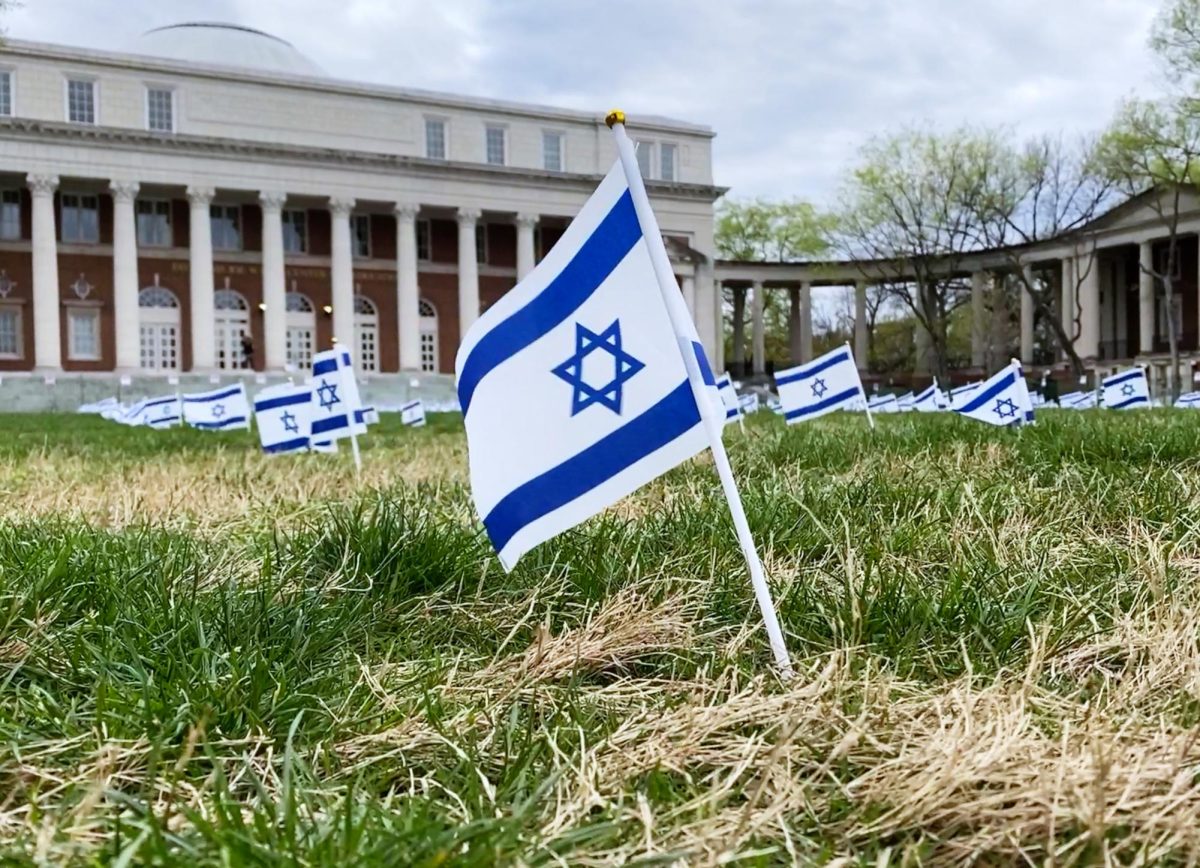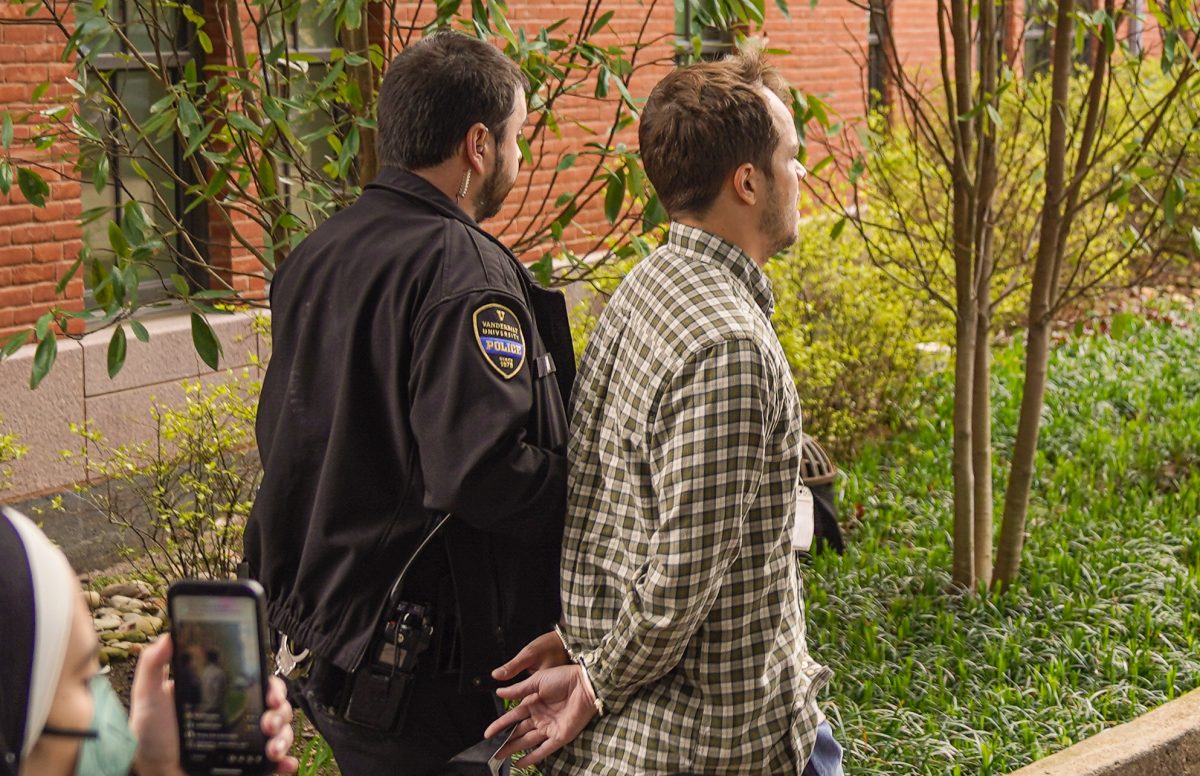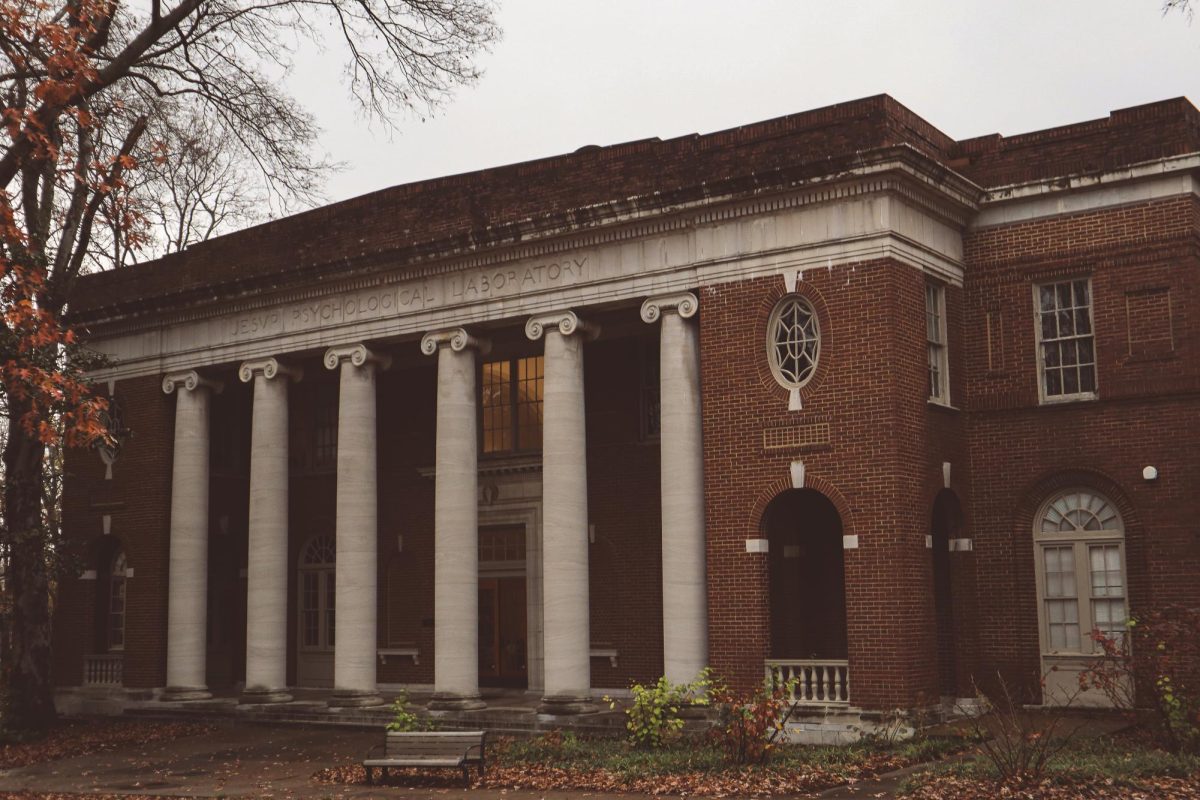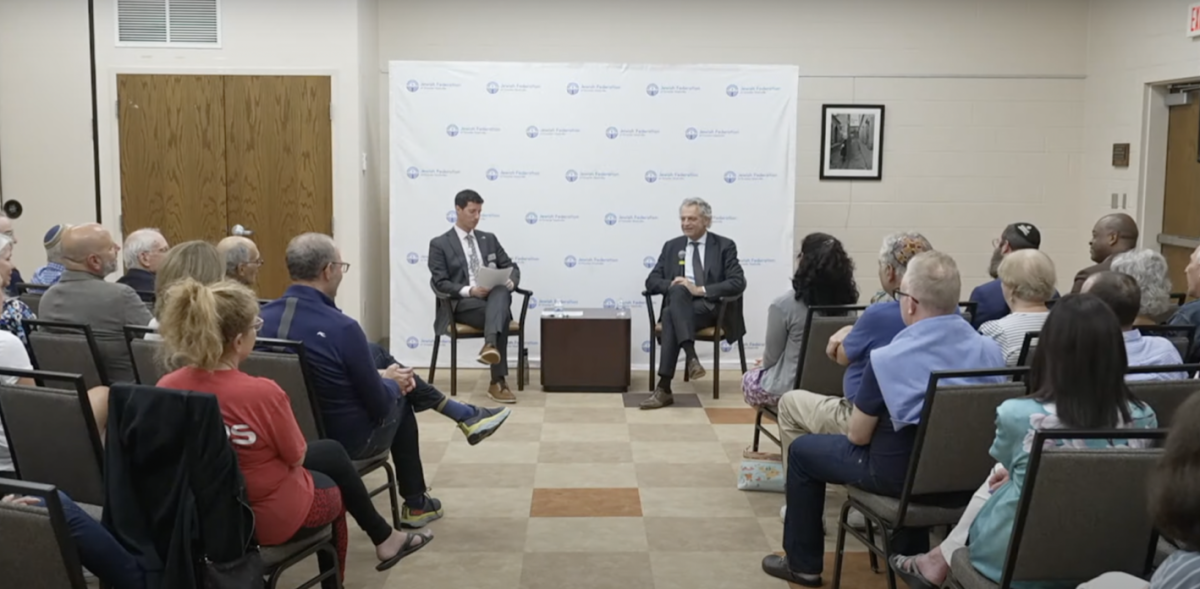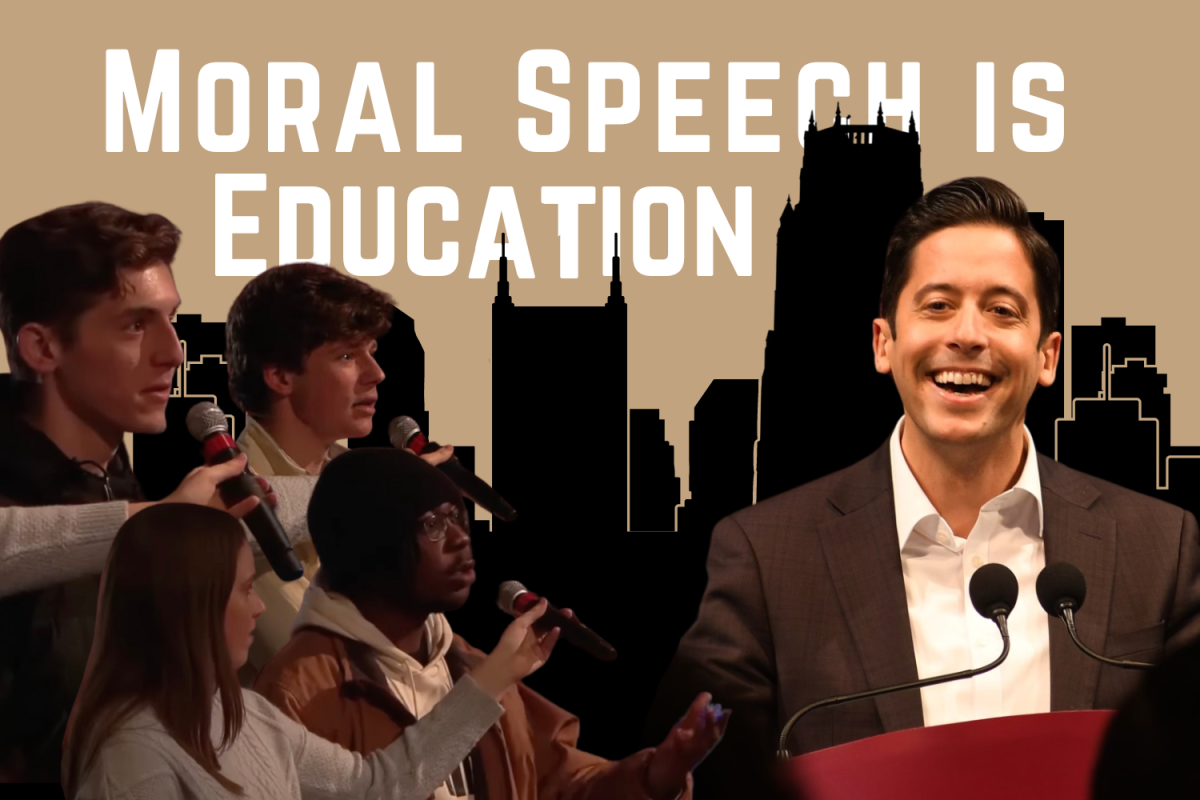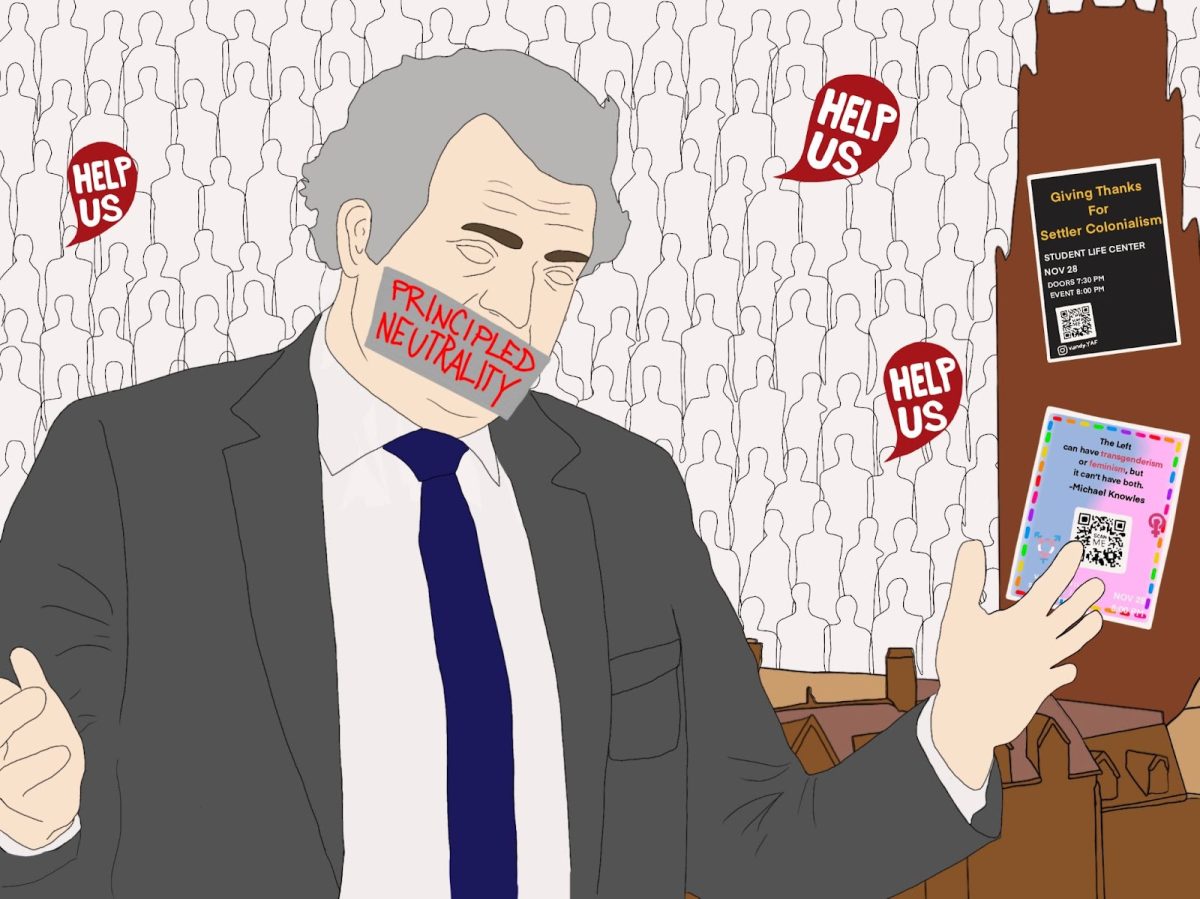The Hustler met with Chancellor Daniel Diermeier on April 25 to discuss the university’s response to the Kirkland Hall sit-in and its effects on and beyond campus. Diermeier described the arrests, suspensions and expulsions as in line with the university’s principles and policies. He added that the protest activity has not affected Commencement plans for the Class of 2024 and has increased interest for first-year and transfer admissions to Vanderbilt.
Diermeier also spoke on the value of civil disobedience, the pro-Palestine protests at other U.S. universities and his summer plans.
Clarifying details of sit-in and aftermath
The Hustler: You talk about Kirkland being designed to be open to the community. Last time we met with you, we met there. After that, we saw there was still construction going on. Can you talk about what that construction looks like, as well as what the plan to open that up currently looks like?
Diermeier: All sorts of small stuff. As you can tell, the big stuff is done, but it’s electric work. When you look at the back entrance, that isn’t finished. It’s not like huge stuff, but electric wires are lying around.
I don’t have an exact timeline. It’s not going to happen within the next week. It’s probably going to be done sometime in the summer.
We’re thinking about access to Kirkland Hall when the construction is done. Kirkland Hall was designed to be open to the community. We want to make sure that this is a place where people feel welcome; it’s a beautiful space.
Could you elaborate a little bit more on the status of the officer injured during the protesters’ entry to Kirkland Hall?
I can’t disclose the exact nature of the injury, but he had to seek medical attention in the hospital. He was off duty for two weeks. He’s back on duty.
I thanked him for what he’s been through and his service to the university. We met and had a conversation about that — he’s extremely dedicated to the university and its mission, and I think this was a very unfortunate incident for him. But he’s back, and he’s doing what he loves to do.
Everything was put on hold for a couple of days or the rest of the week.
— Chancellor Diermeier
Student Accountability and the Metro courts use different standards of consideration, with Student Accountability using the “preponderance of evidence” standard versus the courts using the “beyond a reasonable doubt” standard. If students are found not guilty by the Metro courts, do you see a potential reversal of the student accountability sanctions placed on students?
Well, as you say, these are very different processes and these are very different standards. There are all sorts of things in a criminal court that are important but are not part of student accountability processes. So, the important question is not whether we’re consistent with criminal proceedings. The important question for us is whether we’re consistent with our own rules and processes.
Can you speak to Vanderbilt’s level of involvement in how calls are made to request support from Metro Nashville Police Department and the actions of local police in helping to handle the sit-in?
As you know, we have our own police force — Vanderbilt University Public Safety. We are very proud of the work that they’re doing. They’re well-trained, know the university, and appreciate the students here. They want to work for Vanderbilt; they want to work for the university.
When we have incidents larger than what our police force and Vanderbilt public safety can handle, we sometimes bring in MNPD. So the issue was that we had started to see community members coming on campus and being close to Kirkland Hall in the middle of the night. We didn’t feel comfortable having Vanderbilt Public Safety handle it on its own, so we called Metro, and Metro was happy to assist us.
Is there any plan or intention to take action against the encampments outside Kirkland, especially if they remain after move-out?
We don’t have a policy prohibiting encampments as long as people act appropriately. At this point, the students have been acting appropriately, so if they want to be in a tent, that’s fine. The moment where rules are violated, anything that’s inappropriate or circumstances change gets a different conversation.
Engaging with students, community
One of the calls of the group that entered Kirkland Hall was an interest in meeting with you directly. Is there any plan to meet with the protesting students, especially those still camping outside Kirkland Hall?
I haven’t heard anything, so nobody has contacted my office. We’ve had many various meetings with students before. When they were in the building, my chief of staff asked them whether they wanted to have a meeting, and they said they had no interest in that whatsoever and screamed at my staff. We’re always interested in having conversations — we’ve had conversations with pro-Palestine students before.
Did the cancellation of the VSG Dinner with the Chancellor have anything to do with the sit-ins that happened, or was that completely separate?
Given what happened at the March 26 sit-in, we decided to cancel everything for two to three days. It’s because we didn’t know how this would evolve, and it’s very unfortunate that this happened because that’s a nice and important dinner. But everything was put on hold for a couple of days or the rest of the week.
When VSG talked to Student Affairs about the cancellation, they were told that Student Affairs had met with your office and could not find an “appealing” time for students. Do you know what was used to determine an “appealing” time for students?
No, I don’t know.
It was very easy for us when we had these demands for BDS activities; we could look at our principles and say, ‘That’s not consistent with institutional neutrality, so we’re not going to do that.’
— Chancellor Diermeier
Can you explain your decision to submit an op-ed to The Wall Street Journal and why the most detailed and philosophical explanation of the university’s response to the sit-in came nationally?
They reached out to us. And I think the national publication gets you a lot of visibility and reach. There was a lot of news coverage on this, so I think it was very important to get our voice across and to explain to the broader public what we did and why we did it. I explained the same thing to the Faculty Senate in detail. So we were really trying to reach various audiences internally and externally.
Media policies on campus
In response to your op-ed, a group of Hustler editors wrote a Letter to the Editor about the status of free press on campus. What is your response to what they talked about in that piece?
My view is that, no, our response has nothing to do with repression of free speech. We have had plenty of opportunities for students to express themselves, to have protests. You can express yourself in many different ways, but you can’t break into a closed building and injure a security guard. That’s not free speech. This specific case, I think, is pretty clear-cut. It’s a pretty blatant violation of what we consider a public contract for students, and that has nothing to do with free speech because there are many, many outlets for students to engage in free speech that doesn’t involve these blatant violations.
Do you think the fact that Aubrey B. Harwell, Jr.’s son — who’s working with him on the review of journalist Eli Motycka’s arrest — currently teaches at Vanderbilt Law School and that they’re both alumni of Vanderbilt has any implication of conflict of interest as they’re investigating their alma mater?
He is an extremely reputable lawyer, a legal expert with a national reputation and one of the most preeminent people in the field. If there were any concerns over conflict, they would bring that up. We have no concerns; I think they have been very clear that they will do an unfettered, independent investigation that will be thorough.
How does the university decide to enforce its status as a private campus regarding unregistered visitors? What are the practices surrounding that?
When you visit here, you have to let us know. Now, we want to make sure that this is an open campus and that people can take a walk and that we can be accessible to the neighborhood and all of that. But particularly, if you’re entering a closed building or anything like that, we need to know. If you’re acting inappropriately on campus, we will address that. I think this is a very friendly and welcoming campus, and we like that. This was a different situation, though, of high tension.
We’re not reviewing general visitor policies right now — actually, it’s a good question to think about whether we should. This policy is focused on access for the media.
To clarify, if a member of the external media were to come to campus to cover an event, and it was inside a closed building, and they didn’t notify the university about coming, could they be arrested for that?
If you’re a member of the media, you have to let us know that you’re on campus.
So they would be arrested?
I’m not saying they would be arrested, good Lord, no.
There is a standard process — somebody talks to them, shows them where things are. It is a totally benign process. We’ve never had a problem with it for years. This was a case where somebody on campus was rattling on the doors trying to get into a closed building. This is not our standard interaction with the media. Having said that, we want to make sure that we get an independent point of view who is a real expert on that, who can advise us on that, but we have perfectly fine, great relationships with the media. I mean, I’m talking with three other journalists today. This was an incident in a tense situation where real safety concerns were front and center, so it was different. But, if we can do better, we’ll do that. We think we did the right thing. Maybe we can do better.
A student newspaper photographer at NYU was maced by the NYPD, multiple members of the press at UT-Austin were arrested by state troopers and Motcyka was arrested here. What is Vanderbilt doing to continue to protect freedom of the press as we’re covering such events with heated situations, intense police presence, etc.? How do you think we should approach these sorts of situations?
These are specific situations, so it’s difficult to assess them from afar. I think what’s happening at other universities is their context. I just don’t know what happened in those contexts.
Access to the media and freedom of the press is a fundamental right, but we wouldn’t want to have journalists in a dorm either, for example. So we have to have guidelines on freedom of the press. In athletics, there are press conferences; journalists can’t just run into the locker room.
University principles
Reflecting on the past few weeks of the canceled VSG referendum and subsequent Kirkland Hall protests, what have you and the university learned?
Right now, every university is being tested, and the question is: ‘How do you respond?’ The first thing that I’ve learned is that it’s super helpful to have clear principles, and I think that that has really helped us — open forum, which is our commitment to free speech; civil discourse; and principled neutrality, which are the three pillars when we think about free expression. This is important because these are complicated, complex issues, in particular, in this environment where people have very strong points of view. It was very easy for us when we had these demands for BDS activities; we could look at our principles and say, ‘That’s not consistent with institutional neutrality, so we’re not going to do that.’ Then, of course, as this became more pressing for us, Tennessee law came up as well. BDS is so problematic for us because of a legal reason and a principled neutrality reason.
As a university community, we have done a very good job in allowing space for students to have difficult conversations on this and allow protests. At one time, we had one display that was pro-Palestinian and showed the civilians that were killed in Gaza, and on the other hand, we had a display from the hostages — and I think that was great, exactly the way it should be done.
When we had the forcing into the building and the injury to the security officer, that was also easy to handle because that blatantly violated university rules. A couple of students were charged for assault and one for vandalism. We have expectations about student conduct, too, which everybody knows, which is in the Student Handbook and which were violated in this particular case.
You refer to “appropriate” and regulated forums for free speech on campus. Is there any case where you see disruptive — not violent — protests as more effective than structured discussions and discourse?
There is an important tradition in the Civil Rights Movement and earlier, like with Gandhi and the struggle for independence, which is civil disobedience — a very clear point of view on how to protest. You break a rule intentionally — sometimes symbolically. It was visible; it was intentional; and, in this particular case, it was symbolic. Then there were arrests, all sorts of violence — horrible things happened. In the Civil Rights Movement of the 1960s, people would intentionally go into segregated spaces and were subject to abuse, sometimes violence, like what happened at the luncheon protests in Nashville.
People who engage in civil disobedience accept the consequences. That’s why sometimes these law violations are symbolic. They get arrested because they believe that the willingness to suffer the consequences and go to jail gives their protest additional moral input. It heightens the moral standing of the protest.
Civil disobedience means you’re not engaging in violence — you’re being the victim of violence, and you accept the consequences of your actions. You’re not trying to get out of it. If these conditions of non-violence are not satisfied, then all you’re doing is breaking the law or rules. That’s not civil disobedience, and I don’t think it gives your protest any additional quality or effectiveness.
Are there plans to critically evaluate the university’s policies and principles of free expression in the future? Specifically, would you change the response to the sit-ins during that day and a half?
No — I think that these three principles have served us extremely well. When there is a violation of pretty fundamental rules, like injuring a security officer, we will have to enforce student conduct rules. This is really important because the fundamental purpose of our university is to engage, to have an environment where students can learn, have a transformative education and where faculty can do their research, and that has to be possible.
We don’t have a policy prohibiting encampments as long as people act appropriately. At this point, the students have been acting appropriately, so if they want to be in a tent, that’s fine.
— Chancellor Diermeier
Broader effects of sit-in and other student protests
There have been several changes to Commencement and Graduates Day this year. How is Vanderbilt navigating its growth while embracing tradition? What would you say to concerned people about these traditions, and are any of these changes concerning this past semester’s protests and hopes to prevent further disruptions?
The change has nothing to do with protests.
Every time we learn from a celebration, we ask ourselves how we can do better. And there’s been a lot of change with us over the years. But it’s motivated by what worked, what didn’t work. Our staff is really working tirelessly on that.
Regarding Commencement location, the problem with Alumni Lawn is that it’s too small. There may not be enough room for a family visiting, and about a third of the seats don’t have visibility of the stage. So it’s kind of a podcast for them. It’s a beautiful space. I love that we have our Founders Walk there. FirstBank Stadium is out right now because construction is impossible. We did it at Bridgestone last year, where there was a lot of concern — but it was awesome. We can’t do Bridgestone right now because of the playoffs. Geodis Park is a great location, a great stadium, has great facilities, lots of great things there. We think it’s going to be great.
Graduates Day is at the Rec Center. We had a spectacular kickoff of the Sesquicentennial there last year. We’ll take some elements of that for Graduates Day. It isn’t at Memorial Gym because Memorial Gym is awful for this purpose. I’ve seen Reid Hoffman speak there — we couldn’t hear, and it’s too hot. We tried it on the lawn. It was a little tight, but it was a great space.
I know that people have different points of view on these changes, but the people are working really hard to make this special. I think the sense that we don’t care isn’t deserved. Our people, our staff, especially during these times, work 14-16 hours a day to make sure that this class has as much of a normal typical student experience as possible. We can say we like to have it this way rather than that way, but, the intent is backed up by extremely hard work.
Do you expect the university’s response to the student activism happening this year to affect enrollment and admissions for the Class of 2028 and going forward, especially with the protests on Anchor Day?
We have record applications, and we have record yield. The demand for a Vanderbilt education is just growing. We’ve seen it with students entering the Class of 2028, but also with transfer students. We love where it’s going. So we haven’t seen any evidence of lowered interest. On the contrary, I think the demand for a Vanderbilt education has never been stronger. Regular decision was crazy this year in terms of the demand. So, we love where it’s going.
This is why talking to the media is important. Students and their parents pay attention, and they’ll compare what it’s like to send their son or daughter to Vanderbilt, Columbia, Harvard, Dartmouth or Stanford. It particularly matters if you come from a family where you were right in the middle of this conflict; whether you’re Jewish or of Arab descent, this is important to people. We’re seeing a great demand for valuable education.
Editor’s mix: lifestyle and recreation
What is something you wish that students knew about your job and responsibilities as Chancellor?
I think sometimes people feel that it’s so difficult — there are challenges, don’t get me wrong. But the joy I get out of this people sometimes don’t see. I have the privilege of leading an institution that is deeply meaningful to thousands of people. Being an alum of Vanderbilt is a deep part of our alums’ identities; I am leading an institution where people really care. That’s an enormous privilege, and I spend a lot of your time with people telling me how much they love Vanderbilt. People don’t see that because they see the drama, but they don’t see the many, many, many interactions of people who are extremely grateful for the education they have. So many people when I meet them on the road say, ‘These were the four greatest years of my life.’ And that’s an incredible source of joy.
What are your summer plans?
I have a lot of travel — we still have the Sesquicentennial and all of that. My plan is to take a little time off. And if I can make it work, I’m going to try to see two games of the Euro [UEFA European Championship].











